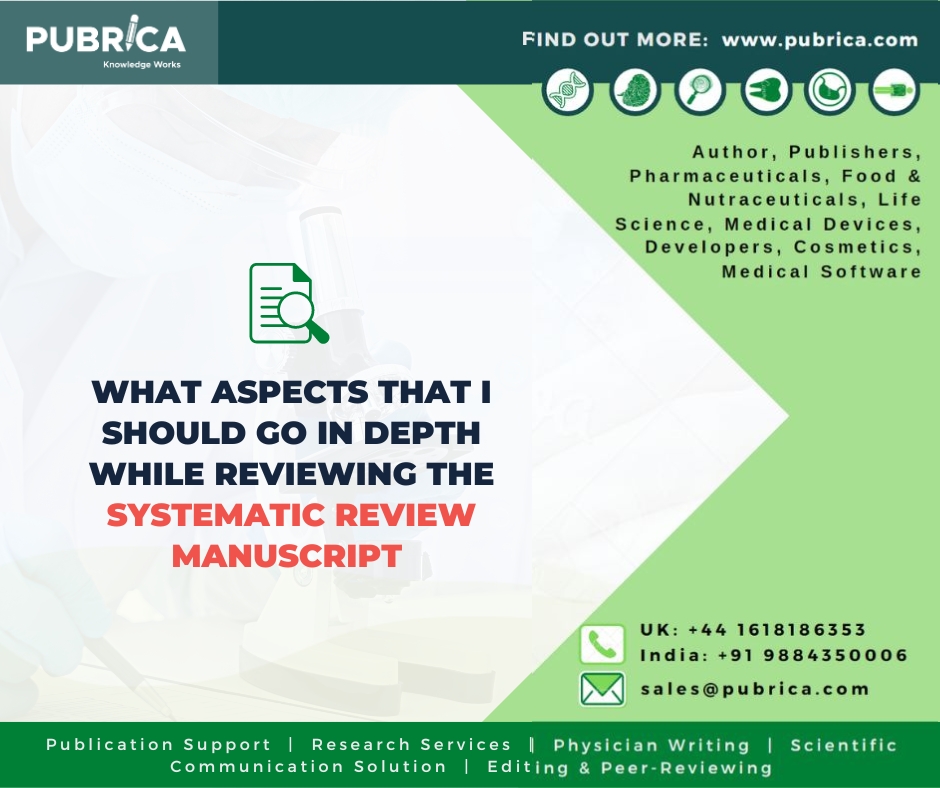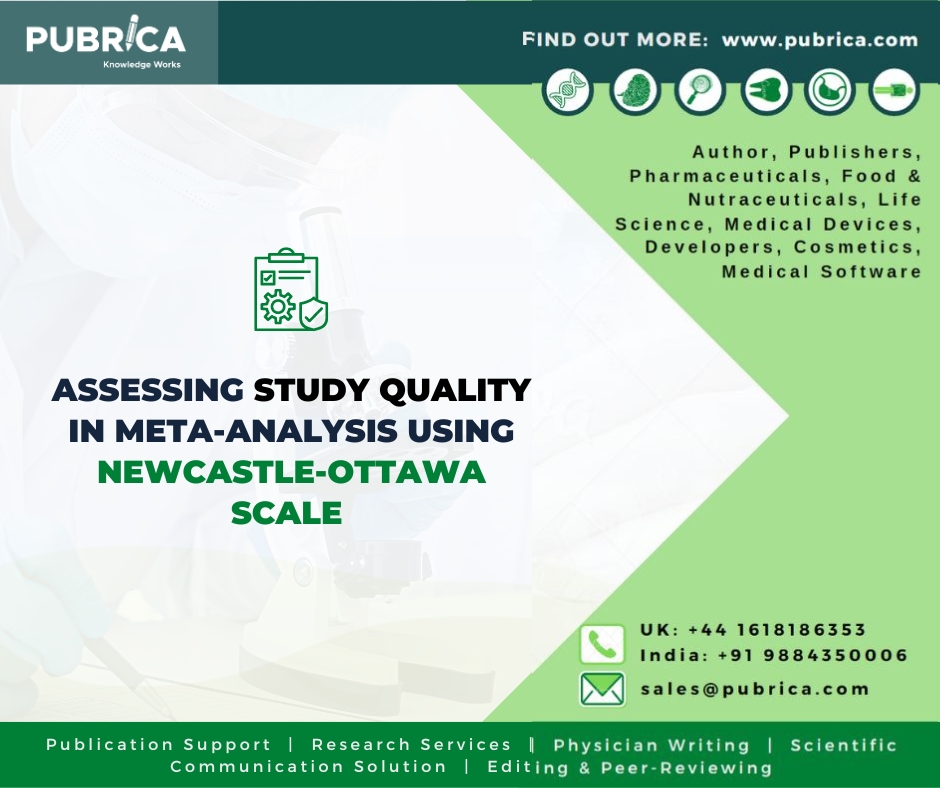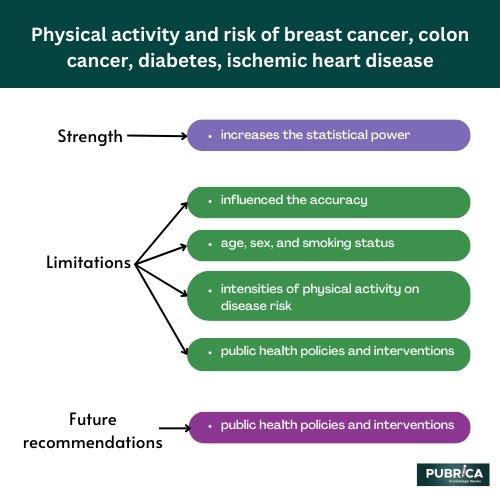
What aspects should I go into depth while reviewing the Systematic Review Manuscript?
May 20, 2023
Assessing Study Quality in Meta-Analysis using Newcastle-Ottawa Scale
May 26, 2023Introduction
The systematic review and meta-analysis by Kyu et al. (2016) on physical activity and the risk of breast cancer, colon cancer, diabetes, ischemic heart disease, and ischemic stroke is a comprehensive study that evaluated data from 174 prospective cohort studies. Overall, the study found that higher levels of physical activity correlated with a lower risk of all five health outcomes, and the risk reduction was more significant with higher levels of physical activity. This blog provides the relationship between Physical activity and the risk of breast cancer, colon cancer, diabetes, and ischemic heart disease.
Strength of the study:
One strength of the study is the large number of studies included in the meta-analysis research, which increases the biostatistical power and generalizability of the results. The study also used a dose-response meta-analysis approach to evaluate the correlation between physical activity and the risk of each health outcome, which provides more nuanced information on the optimal level of physical activity for disease prevention.
Limitations of the study:
However, there are also several limitations of the study that should be considered. One limitation is the heterogeneity of the included studies in terms of the measurement of physical activity and health outcomes, which may have influenced the accuracy and generalizability of the results. Additionally, while the study attempted to account for potential confounding variables, such as age, sex, and smoking status, there may still be residual confounding that was not accounted for in the analysis strategy in research.

Another limitation is that the study focused exclusively on the connection between physical activity and the risk of these five health outcomes and did not consider other potential health benefits or harms of meta-clinical research on physical activity. Additionally, the study did not consider the potential impact of different types or intensities of physical activity on disease risk, which could be important for informing public health recommendations.
Overall, the study by Kyu et al. provides important evidence on the relationship between physical activity and the risk of several primary healthcare outcomes. To completely understand the relationship between physical activity and health and improve public health policies and treatments, further research is required, however, according to the study’s limitations.
Future recommendations
The systematic review and meta-analysis by Kyu et al. (2016) provide substantial evidence of the relationship between physical activity and the risk of several primary health outcomes, including breast cancer, colon cancer, diabetes, ischemic heart disease, and ischemic stroke. According to the study, higher levels of physical activity are linked to a decreased risk of various health consequences, and the risk reduction increases as physical activity level increases. Based on these findings, the authors recommend that public health policies and interventions focus on promoting physical activity to reduce the risk of these diseases. They specifically advise people to do at least 150 minutes of moderate-intensity aerobic physical activity or 75 minutes of vigorous-intensity aerobic physical activity each week, along with muscle-strengthening exercises at least two days per week. Additionally, the authors suggest that further research is needed to understand better the relationship between physical activity and health outcomes, particularly concerning the intensities, types, and durations of physical activity most beneficial for disease prevention. They also suggest that more research is needed to identify the mechanisms underlying the relationship between physical activity and health outcomes, which could help to develop more targeted disease prevention interventions.
Conclusion
In conclusion, this study’s findings revealed that a higher level of total physical activity is strongly associated with a lower risk of breast cancer, colon cancer, diabetes, ischemic heart disease, and ischemic stroke, with the majority of health gains occurring at a total activity level of 3000-4000 MET minutes/week. The findings imply that overall physical activity should be several times greater than the suggested minimum level of 600 MET minutes/week to reduce the risk of these illnesses significantly. With the population ageing and the prevalence of cardiovascular and diabetes mortality increasing since 1990, greater focus and investment in programs to increase physical activity in the general public is required. More studies based on a strict assessment of overall physical activity will assist in identifying more exact estimates for various levels of physical activity.
About Pubrica
Pubrica’s research and writing teams provide scientific and medical research papers that authors and practitioners may find useful. Pubrica medical writers assist you in creating and rewriting the introduction by informing the reader about the constraints of the selected study subject. Our experts understand the sequence in which the confined subject, problem, and backdrop are followed by the targeted location in which the hypothesis is presented.
References
Kyu, Hmwe H., et al. “Physical activity and risk of breast cancer, colon cancer, diabetes, ischemic heart disease, and ischemic stroke events: systematic review and dose-response meta-analysis for the Global Burden of Disease Study 2013.” bmj 354 (2016).



